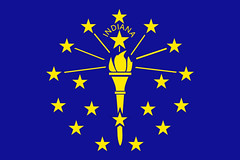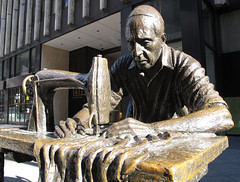Foxconn Workers Threatened Mass Suicide

Electronics giant Foxconn has confirmed reports from Chinese anti-government websites that workers in the southern city of Wuhan threatened mass suicide earlier this month over a labor dispute:
Jan. 12 (Bloomberg) – Foxconn Technology Group, maker of parts for Microsoft Corp.’s Xbox, said some members of its 1 million-person workforce threatened to jump from a factory building earlier this month to protest an internal transfer of employees.
About 150 workers at Foxconn’s plant in Wuhan, southern China, demonstrated on Jan. 2 in opposition to the company’s plan to move them to a new production line, the Taiwanese company said in an e-mailed statement today. Foxconn didn’t say how many threatened to leap from the three-story building.
The incident was resolved the same day, after talks between the workers, executives and government officials, Foxconn said. Microsoft said in a separate statement that it investigated the issue.
Foxconn, the world’s largest contract electronics manufacturer, makes products coveted worldwide, including Apple iPhones and components for Microsoft Xboxes.
In 2010, at least 14 Foxconn workers committed suicide to protest brutal working conditions. The company reportedly increased wages and installed safety nets in response. According to some reports workers were asked to sign contracts not to commit suicide.
[Photo credit: Shenzhen High Tech Fair, by Bert van Dijk, Creative Commons.]










